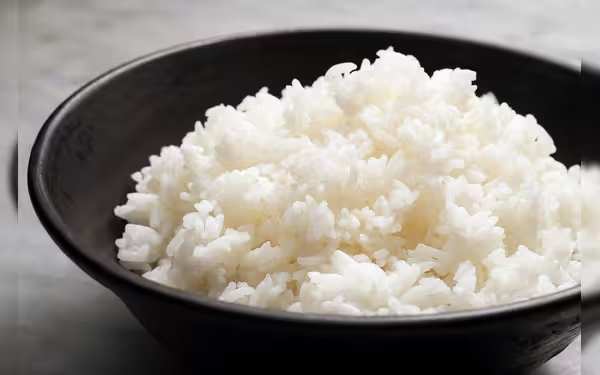Saturday, November 16, 2024 07:44 PM
Pakistan Rice Exporters Face Challenges as India Lifts Export Restrictions
- India's policy change threatens Pakistani rice market share.
- Pricing pressure on basmati rice expected from Indian competition.
- Farmers' livelihoods at risk due to potential income reduction.
 Image Credits: tribune.com.pk
Image Credits: tribune.com.pkPakistan's rice exporters face challenges as India lifts export restrictions, impacting market dynamics and farmers' livelihoods.
In recent developments, rice exporters in Pakistan find themselves in a precarious situation as India has lifted its restrictions on rice exports. This change in policy is significant, as it could reshape the competitive landscape of the rice market in South Asia. For years, Pakistani basmati rice has held a reputation for its quality, but it has also been priced 10-15% higher than Indian rice. This price difference is largely attributed to higher production costs and various export-related taxes that Pakistani farmers face.
Experts are now voicing concerns about the implications of India’s decision. Fareed Ansari, an agricultural economist, remarked, "This is a strategic move to regain India's dominance in key markets, which will create immense pricing pressure on Pakistani basmati rice." This statement underscores the potential challenges that Pakistani exporters may encounter as they strive to maintain their market share.
The lifting of restrictions by India could lead to an influx of Indian rice into international markets, making it more challenging for Pakistani exporters to compete. With Indian rice often being sold at lower prices, Pakistani basmati rice may struggle to attract buyers, especially in price-sensitive markets. This situation could force Pakistani exporters to reconsider their pricing strategies and explore ways to enhance the value of their product.
Moreover, the rice industry in Pakistan is not just about economics; it also supports millions of farmers and their families. The potential impact on livelihoods is a serious concern. If Pakistani rice cannot compete effectively, it could lead to reduced income for farmers, affecting their ability to invest in better farming practices and technology.
As the situation unfolds, it is crucial for stakeholders in the Pakistani rice industry to adapt to these changes. This may involve improving production efficiency, exploring new markets, or even enhancing the quality of their rice to justify higher prices. The future of Pakistani basmati rice hinges on the ability of its exporters to innovate and respond to the competitive pressures posed by India.
While the lifting of restrictions by India presents challenges, it also offers an opportunity for Pakistani rice exporters to rethink their strategies. By focusing on quality and exploring new markets, they can not only survive but potentially thrive in a competitive environment. The coming months will be critical in determining how the rice industry in Pakistan navigates this new landscape.













